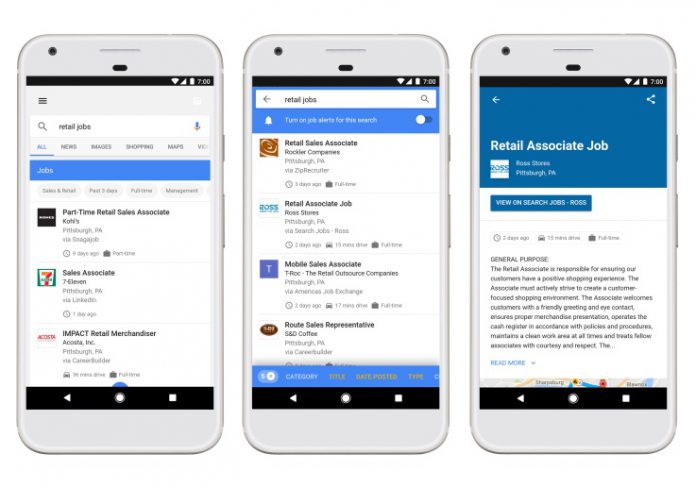Google has announced today a new feature for its search engine. The company's new jobs search tool allows users to quickly aggregate jobs right on the results page. To achieve this, Google Search scraps data from leading job boards, including Microsoft's LinkedIn.
As well as mining LinkedIn's considerable data, Google Search also takes results from WayUp, CareerBuilder, Facebook, and others. The results also include any job listings made directly on a company's own website.
Google says the purpose of the new feature is to save time. Users can search jobs without having to go to individual services and find duplicate postings.
Mountain View says the feature has rolled out today on desktop and mobile. However, it is currently limited to Google Search in English. To get started, users should type search terms like “jobs near me” or “office jobs” to see the results listings.
The results page now sports a new widget which toggles the job listings to see the range of job advertised. Search results can be filtered after the initial results, including refining for full-time positions or locations.
Google is also placing ratings for companies, so users do not waste their time applying for bad providers. Once a search term finds the results you want, notifications can be arranged to alert you when a new job is posted.
Tapping into LinkedIn
The company uses machine learning to deliver listings that do not show duplicate posts. Algorithms work through job sites to find listings and present them in the search.
While Google Search will aggregate the listings, you will still need to navigate to the site to begin the application process. This is good news for services like LinkedIn, which now gets another link into its network.
To encourage sites to offer complete listings, Google will direct users to the website with the most complete version of a job if there are duplicate listings.
Lastly, the company says it is not interested in competing with services like LinkedIn. Google says it will not be allowing companies to post listings directly to the search engine.






